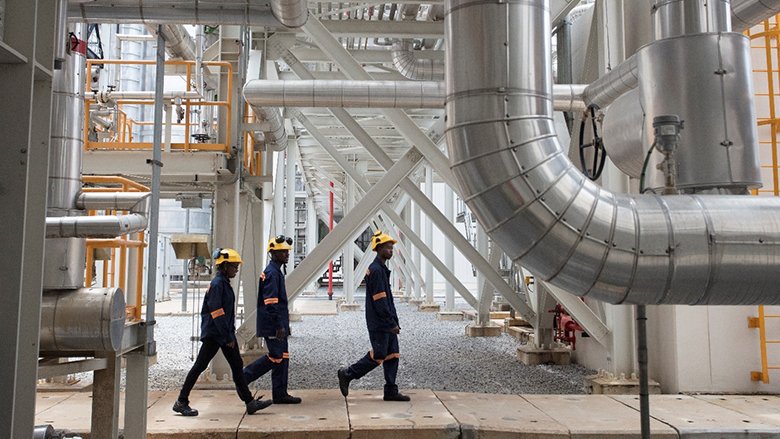No country is immune to the impacts of climate change, but the poorest countries are disproportionately vulnerable. Recent estimates suggest that climate change could push as many as 130 million people into extreme poverty by 2030, hitting Sub-Saharan Africa and South Asia the hardest, and undoing hard-won development gains.
Climate action requires significant financing at scale and public resources alone will not be enough to meet this challenge, making private capital mobilization a must. The International Development Association (IDA), through its Private Sector Window (PSW), is enabling private investors and companies to play a key role in financing the transition to a low-carbon economy in vulnerable markets. The IDA PSW works with the World Bank Group’s private sector arms—the International Finance Corporation (IFC) and Multilateral Investment Guarantee Agency (MIGA)—to leverage IDA’s resources and catalyze private investments—many focused on strengthening climate action.
Here are three IDA PSW interventions that are enabling climate action in the poorest countries:
1. Expanding Financing for Climate Investments
IDA PSW is supporting IFC investments in funds focused on energy efficiency and renewable energy solutions. These funds make critical capital available for businesses and projects that mitigate or reduce greenhouse gas emissions. For example, the €100 million Afrigreen Debt Impact Fund offers financing solutions to support small to medium on-and off-grid solar power plants. These new facilities will make further investments in renewable resources possible, while creating jobs and positively impacting lives. The Africa Go Green Fund, a pan-African fund with a focus on West Africa, provides financing, guarantees, and advisory services to finance private sector energy efficiency and renewable energy solutions such as green housing, green appliances, green mobility solutions, and distributed solar, creating an estimated 100,000 jobs in the process.
2. Tapping into Solar and Wind Potential
Solar and wind technologies have tremendous potential to revolutionize the power sector. They are widespread and abundant resources, the infrastructure needed to harness them requires short construction timelines, and the electricity they generate is cost-competitive with fossil fuels. When combined with battery storage, solar and wind can provide dependable power for many IDA countries.
After decades of conflict, more than 90 percent of Somalia’s electricity is supplied by a system of private energy service providers using isolated distribution networks with embedded small-scale diesel generation, making the cost of power among the highest in the world. With the support of the IDA PSW, MIGA was able to provide a guarantee to Kube Energy for a solar hybrid power plant that will replace existing diesel generation. This translates into greenhouse gas emissions savings of 2,800 metric tons of carbon dioxide equivalent per year (tCO2e).
3. Realizing the Power of Hydro
Hydropower is another important renewable resource that can deliver energy at affordable and competitive prices. It is the largest and most readily scalable form of renewable power generation currently available but only a fraction of the hydropower potential of the developing world has been tapped. For this reason, IDA PSW is helping make it possible for IFC and MIGA to invest in hydropower projects in some of the most challenging markets.
As a small island state, the Solomon Islands is particularly vulnerable to external shocks like natural disasters and climate change, so the development of a flexible and sustainable power source is a game-changer. IDA PSW’s support made it possible for MIGA to provide a guarantee for the development of a 15-megawatt hydropower plant on the Tina River. Once completed in 2025, the plant is expected to substantially increase access to power for the local population, decrease the country’s dependence on imported fossil fuels, and stimulate the growth of new industries, businesses, and jobs.
Addressing climate change in IDA countries is critical to building the resilience needed to withstand future shocks and helping countries seize economic opportunities to create more and better jobs in a greening global economy. IDA PSW investments in these sectors are improving lives and helping to drive further investment by demonstrating the viability of such projects. The IDA PSW will continue to work with IFC and MIGA to strategically leverage IDA’s resources to help mobilize crucial private sector investment for climate projects in the poorest and most fragile markets.
Last Updated: May 31, 2023

